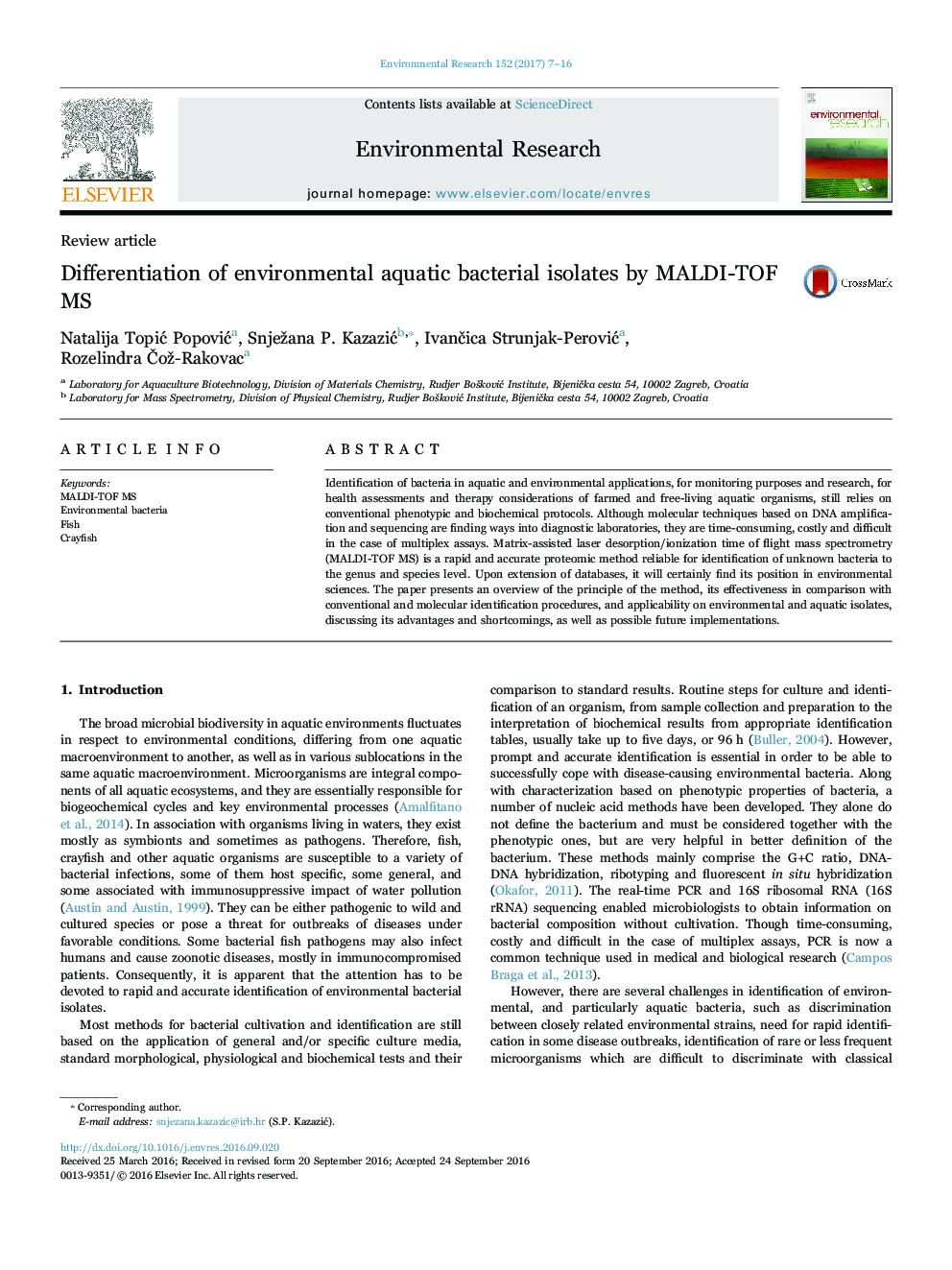| Article ID | Journal | Published Year | Pages | File Type |
|---|---|---|---|---|
| 6350846 | Environmental Research | 2017 | 10 Pages |
Abstract
Identification of bacteria in aquatic and environmental applications, for monitoring purposes and research, for health assessments and therapy considerations of farmed and free-living aquatic organisms, still relies on conventional phenotypic and biochemical protocols. Although molecular techniques based on DNA amplification and sequencing are finding ways into diagnostic laboratories, they are time-consuming, costly and difficult in the case of multiplex assays. Matrix-assisted laser desorption/ionization time of flight mass spectrometry (MALDI-TOF MS) is a rapid and accurate proteomic method reliable for identification of unknown bacteria to the genus and species level. Upon extension of databases, it will certainly find its position in environmental sciences. The paper presents an overview of the principle of the method, its effectiveness in comparison with conventional and molecular identification procedures, and applicability on environmental and aquatic isolates, discussing its advantages and shortcomings, as well as possible future implementations.
Related Topics
Life Sciences
Environmental Science
Health, Toxicology and Mutagenesis
Authors
Natalija TopiÄ PopoviÄ, Snježana P. KazaziÄ, IvanÄica Strunjak-PeroviÄ, Rozelindra Äož-Rakovac,
